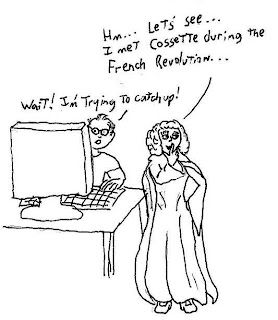Whoops.
It appears I posted my article a week early. Ah well. This gives me the chance to pen a quick letter of encouragement.
Dear Frustrated Author;
I understand you’ve had it rough. Word has filtered to me that you’re ready to throw in the towel.
I realize you’re tired of finding mistakes in your manuscript that previously were invisible. That you can’t believe the betas and the critique group members found something so obvious while you overlooked it for the last seventeen read throughs.
And then there were those constant rejections. You wonder if there is a single lit agent in the world who hasn’t passed on your masterpiece. It’s so easy for them, huh? You pour your life blood into this work and they don’t have the decency to look at it. Or maybe they did ask for pages and now you know they saw the glaring errors your betas pointed out. Ouch!

I need you to realize something. These problems are normal, they will happen again and even get replaced with other challenges. I don’t need to tell you that this is life.
What I do want you to do is think back. Remember when you got the notion for this book? Remember why you wanted to be a writer? Think on that. Remember the positive things your betas and critique group members said? It wasn’t all bad, was it?
Why would you build a wooden rocking horse for a child? Because you love her and want to see her smile and laugh. There is an end result you’re looking for. So you begin and work every day on it. Tiny slivers cut into your hands and you wince with pain (the smallest cuts seem to hurt the most). Do you quit?
How about when that child comes over on Saturday and asks, “Is my horsey almost done, Uncle Author?” What do you say?
You suck the tiny sliver spots on your hands and get back to work. You persevere. At some point you’re finished and she laughs and smiles and rocks the heck out of that beautiful rocking horse.
My point? When were down, we don’t know the future, keep at it. There is a certain period of time between painful creation and happy finished work. When I say “finished” I don’t mean rough draft stage or 5th revision, I mean the end of the road. For you and I that means published.
The gap between start and true finished is a long one involving many pratfalls. We have to remember our goals, reevaluate our plans and jump back into the work. Everyone has a reason to write. Focus on your end destination (like the happy child in my example) and push to that goal.
You’ve made it this far, why stop now?

